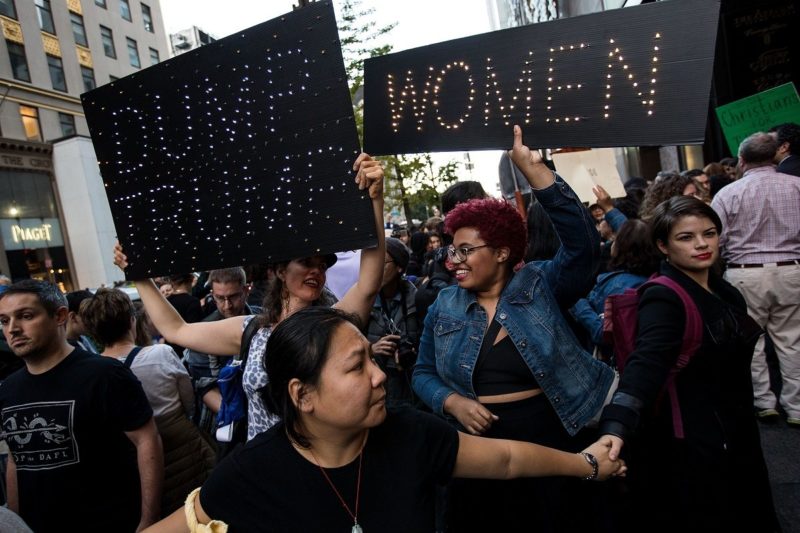Women’s March Platform Demands Abortion Access for All
“We do not accept any federal, state or local rollbacks, cuts or restrictions on our ability to access quality reproductive healthcare services, birth control, HIV/AIDS care and prevention, or medically accurate sexuality education,” the Women’s March on Washington platform says.

The organizers behind the Women’s March on Washington, scheduled for the day after the inauguration in Washington, D.C., released a document this week outlining guiding principles they are using to shape the event, including a call for unfettered access to abortion care.
“Recognizing that women have intersecting identities and are therefore impacted by a multitude of social justice and human rights issues, we have outlined a representative vision for a government that is based on the principles of liberty and justice for all,” reads the group’s four-page statement.
“Our liberation is bound in each other’s,” the documents says. It explains that the march hopes to follow in the footsteps of “leaders of organizations and communities that have been building the foundation for social progress for generations” such as the civil rights, Black Lives Matters, and women’s suffrage movements.
Event organizers plan to bring together “people of all genders, ages, races, cultures, political affiliations and backgrounds” to take a stand against the harmful rhetoric about marginalized communities that dominated much of the 2016 presidential election cycle. The march intends to “send a bold message” to the incoming administration that “women’s rights are human rights,” according to its website.
Speaking to the New York Times in November, Breanne Butler, an event organizer, said it would take place on Trump’s first day in office “because we are making a statement.”
“The marginalized groups you attacked during your campaign? We are here and we are watching. And, like, ‘Welcome to the White House,'” Butler told the Times.
The Women’s March on Washington’s document highlights the pressing need for gender, racial, and economic justice. “We must create a society in which women, in particular women—in particular Black women, Native women, poor women, immigrant women, Muslim women, and queer and trans women—are free and able to care for and nurture their families, however they are formed, in safe and healthy environments free from structural impediments.”
The platform names reproductive freedom among its list of key values.
“We do not accept any federal, state or local rollbacks, cuts or restrictions on our ability to access quality reproductive healthcare services, birth control, HIV/AIDS care and prevention, or medically accurate sexuality education,” the document says. “This means open access to safe, legal, affordable abortion and birth control for all people, regardless of income, location or education. We understand that we can only have reproductive justice when reproductive health care is accessible to all people regardless of income, location or education.”
Reproductive rights and health advocates such as the NARAL Pro-Choice America Foundation, the Center for Reproductive Rights, Planned Parenthood, the National Institute for Reproductive Health, and the National Latina Institute for Reproductive Health are listed among the organizations partnering with the march.
Some anti-choice activists have announced that they plan to attend the march. “It still says all are welcome, so we don’t plan to counterprotest, we plan to march,” Students for Life of America told Mic in a recent interview.

